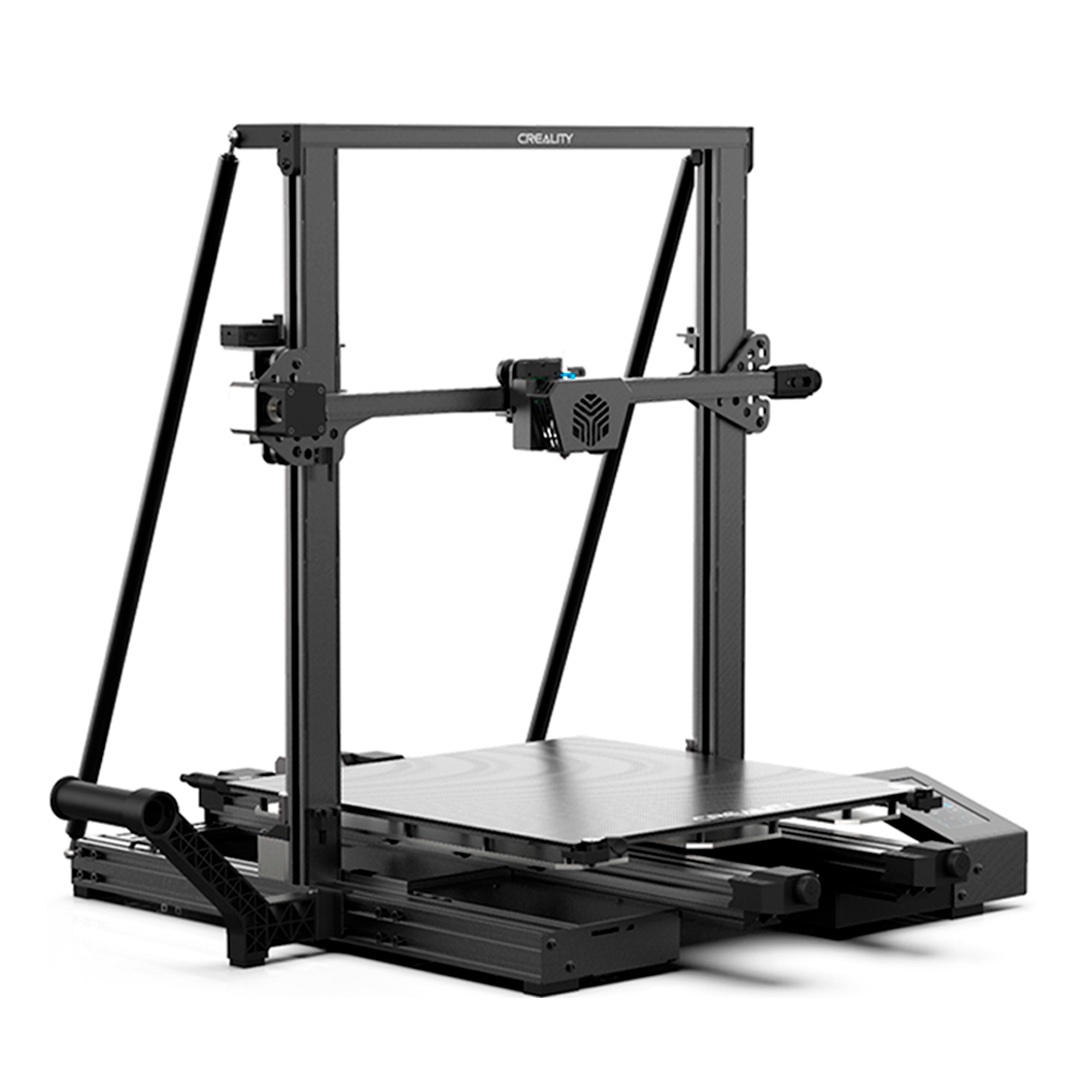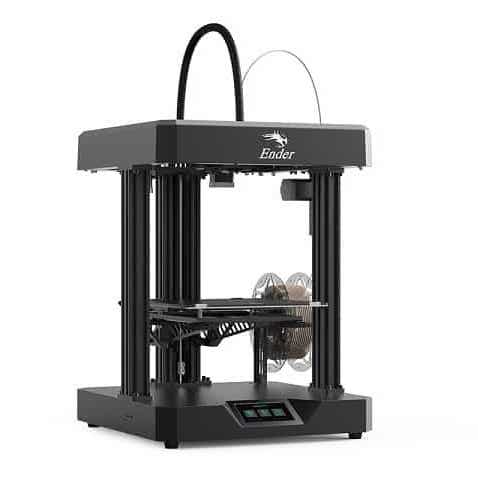Compare CR 6 Max vs Ender 7
Comparison between the best 3D printers
Choose the best 3D printer at the best price. The cheapest 3D printers are here.
Buy a 3D printer here with 3D Fila.
 |
 |
|
| Model | CR 6 Max |
Ender 7[BUY Ender 7] |
| Printing Material | Filament | Filament |
| Buy Filament for Creality 3D CR 6 Max | Buy Filament forCreality 3D Ender 7 | |
| Estimated price | $700,00 | $429,00 |
| Manufacturer | Creality 3D | Creality 3D |
| Release Year | 2021 | 2021 |
| Print Volume [mm] | 400x400x400 | 250x250x300 |
| Printer Size [mm] | 725x640x691 | 430x460x570 |
| Weight [kg] | 14 | 17,2 |
| Power Loss Recovery | YES | YES |
| Enclosed printer | NO | NO |
| Bed Leveling | Automatic | Manual |
| Filament End Sensor | YES | YES |
| Bed type | Heated | Heated |
| Power supply system | Bowden | Bowden |
| Standard nozzle | 0,4 | 0,4 |
| Maximum Nozzle Temperature [°C] | 260 | 260 |
| Maximum Bed Temperature [°C] | 90 | 100 |
| Maximum printing speed [mm/s] | 100 | 250 |
| Filament holder | YES | YES |
| Camera for supervision | NO | NO |
| Recommended filaments | PLA, PETG | PLA, PETG, Tritan, Flex, ABS |
| Recommended slicers | Cura, Simplify, Slic3r, IdeaMaker | Cura, Simplify, Slic3r, IdeaMaker |
| Maximum Resolution [mm] | 0,1 | 0,1 |
| Processor | Creality CR-FDM V.2.4.S1_V101 32bits | |
| Display | Display touchscreen 4,3'' | Display touchscreen 4,3'' |
| Power Supply | 110/220V / 500W | 110/220V / 350W |
| Connectivity | SD / USB | SD / USB |
| Operating systems | Windows, Mac, Linux | Windows, Mac, Linux |
| Date of registration in the system | 2022-11-04 | 2022-11-04 |
| Release date | 2021 | 2021 |
| Extra features | Crealitys CR-6 Max printer offers a large 400 x 400 x 400mm build area, perfect for larger projects without dividers. Its auto-leveling system and force sensor simplify setup. It has a 4.3-inch touchscreen and convenient features like a tool drawer and filament holder. Plus, its modular hotend, redesigned extruder, and silicon carbide-coated build plate improve print quality. | Crealitys Ender 7 printer offers remarkable print speeds, utilizing CoreXY kinematics for precise and fast movement. With a 250x250x300mm build area, dual direct extruder, and custom hotend, the Ender 7 is capable of printing at high speeds, although quality may suffer on smaller prints. Assembly is relatively straightforward, but the machine is noisy and can get hot. Its true speed potential is most noticeable on larger prints, where it outperforms its competitors. |
| Support for multiple colors and materials (AMS and CFS) | NO | NO |
Notes * |
||
| Cost-benefit | 6 / 10 | 7 / 10 |
| Hardware | 2 / 10 | 2 / 10 |
| Tela | . | . |
| Print volume | 4 / 10 | 4 / 10 |
| Performance | 1 / 10 | 2 / 10 |
| [BUY Ender 7] |
Conclusion |
| In comparing the CR 6 Max and the Ender 7 3D printers, several key factors come into play to help determine the best choice for potential buyers. The CR 6 Max stands out with its significantly larger print volume, allowing for the creation of bigger and more complex projects. Its automatic bed leveling feature offers convenience for users, particularly novices, while the availability of a heated bed enhances compatibility with various filament types. However, it has a relatively lower cost-benefit score, which may suggest limitations in performance or features relative to its price. On the other hand, the Ender 7 impresses with its exceptional maximum printing speed, bolstered by its CoreXY kinematics. This makes it a compelling choice for users who prioritize speed and can work with its smaller build volume. Its assembly is straightforward, although users may need to contend with noise and heat during operation. The Ender 7 benefits from a slightly better cost-benefit rating, indicating it may offer more value for money despite its limitations in size. Ultimately, the choice boils down to individual needs: the CR 6 Max is ideal for those looking to print larger objects with ease, while the Ender 7 suits users who prioritize printing speed and are willing to accept a smaller build area. Both printers cater to diverse requirements, and potential buyers should base their decision on specific project needs, budget considerations, and personal preferences in printer functionality. |

